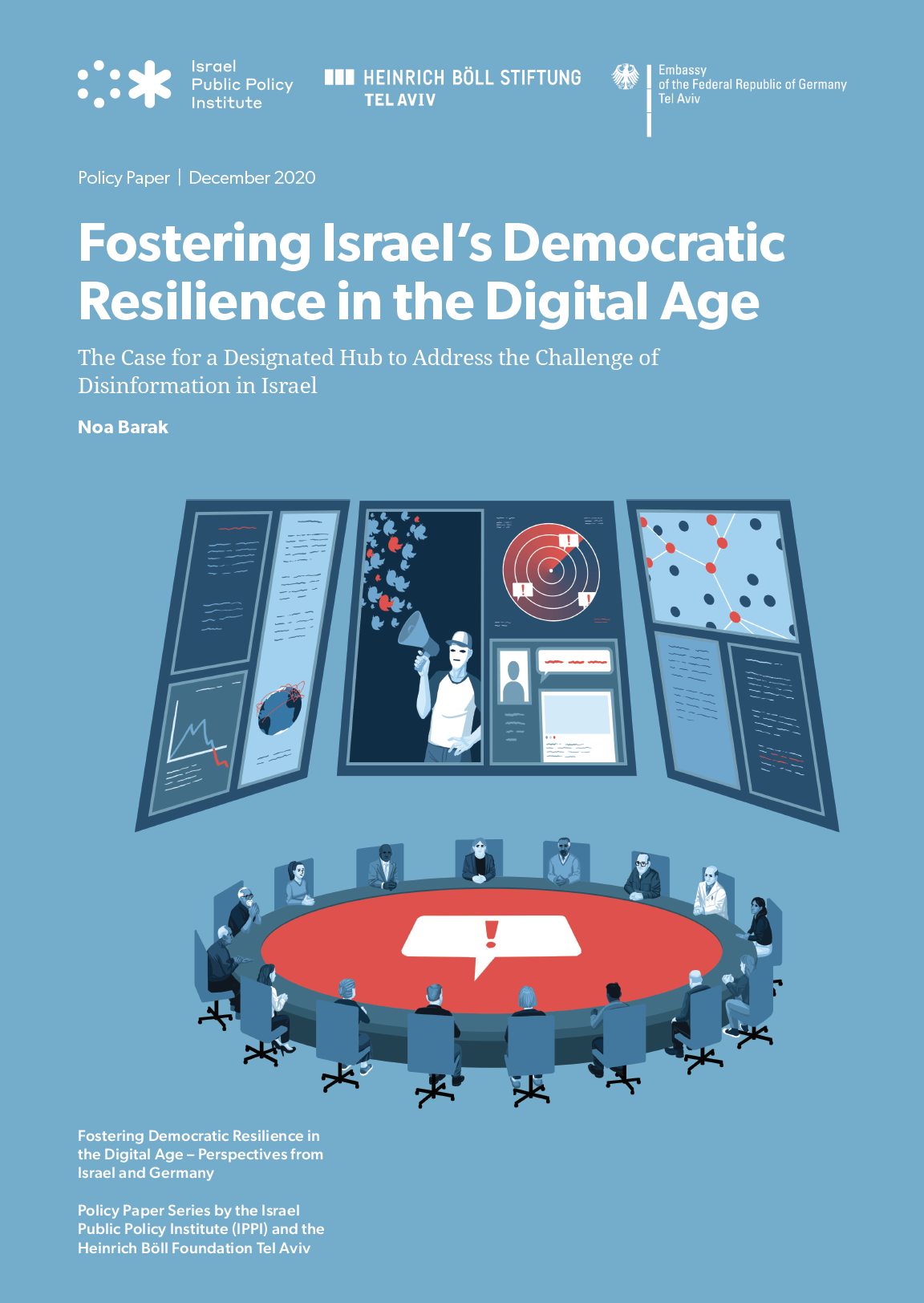Fostering Israel’s Democratic Resilience in the Digital Age with a Disinfo Hub

Share this Post
The Case for a Designated Hub to Address Disinformation in Israel
Disinformation has become an increasingly expansive phenomenon that occurs at various levels of production, consumption, and dissemination of information, infiltrating every sphere of individuals’ lives. By doing so, it cripples the political, economic, and ecologic systems of the world, permeates the mechanisms of crucial decision-making related to health, security, and the environment, and heightens ideological and cultural tensions that threaten the stability of communities and democracies. The COVID-19 pandemic brought along a mass wave of disinformation, and increased public recognition of the need to create mechanisms that protect societies against the threat of disinformation, both in Israel and around the world.
Legislation is one of the methods being utilized to regulate the information and data market and oversee how information is collected, processed, and circulated by tech companies. However, these efforts are not sufficient, and a civic infrastructure is required to preserve democratic foundations and create social digital resilience.
Israel is an example of a country in which disinformation can be easily disseminated, due to its ongoing political, economic, and health crises which incapacitate government institutions and hamper the advancement of any policy to regulate disinformation and create social digital resilience. Therefore, this policy paper aims to create a framework for establishing and implementing a non-governmental, civil path for managing disinformation in Israel by creating a disinfo hub that will harness the power of activists in the field.
Based on this need, the following recommendations were made:
- Create a designated civil “Disinfo Hub” to tackle disinformation in Israel that will prevent the Israeli digital public sphere from being exposed and defenseless against disinformation.
- Combine courses of action to advance a “whole-of-society approach” that requires creating and sharing knowledge and insights, promoting cross-sector collaboration, and advancing public engagement and policy advocacy.
————————————————————————————————————————————————–
The Israel Public Policy Institute (IPPI) serves as a platform for exchange of ideas, knowledge and research among policy experts, researchers, and scholars. The opinions expressed in the publications on the IPPI website are solely that of the authors and do not necessarily reflect the views of IPPI.
Download Full Publication
Policy Paper - Fostering Israel's Democratic Resilience in the Digital Age

Share this Post

Planning and managerial approaches of (un)loading bays for urban delivery vehicles
Global trends such as population growth, increasing urbanization and sustained economic growth of cities lead to increased freight…

What are Filter Bubbles and Digital Echo Chambers?
Many experts are concerned that the curation of content on social media platforms limit our chances of encountering…

A Call for a Value-Driven Approach to ‘Digital Sovereignty’
The Internet has been labelled as an independent and universal space throughout the 1990s and until today many believe it should…
